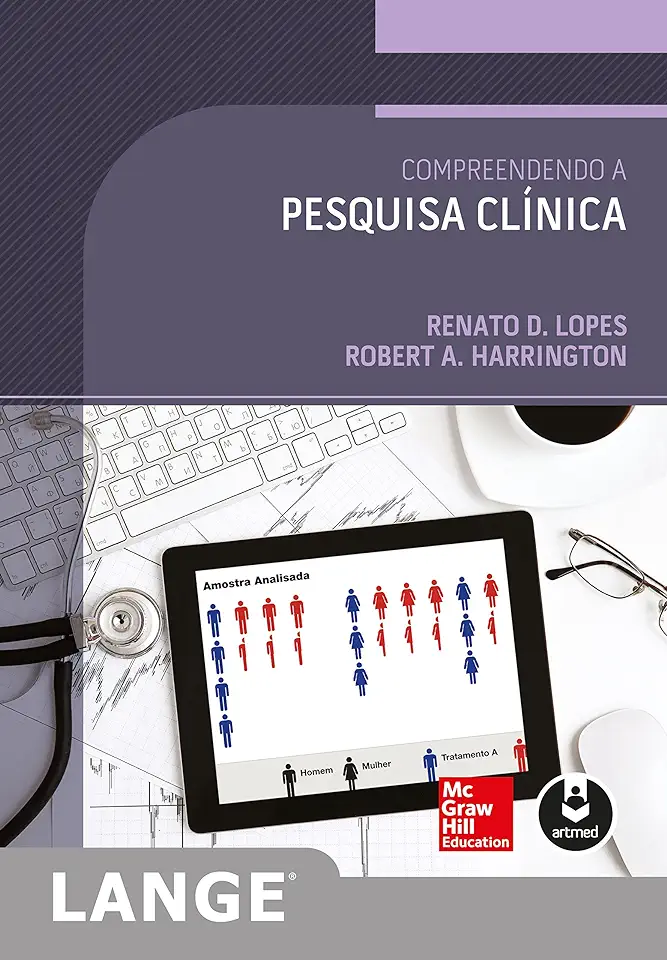
Understanding Clinical Research - Renato D. Lopes
Understanding Clinical Research: A Comprehensive Guide for Health Professionals
Introduction
Clinical research is a vital component of modern healthcare, driving advancements in treatments, therapies, and patient care. In his comprehensive book, "Understanding Clinical Research," renowned researcher and educator Renato D. Lopes provides a comprehensive and accessible guide to the field. This book is a must-read for healthcare professionals, researchers, and anyone interested in understanding the intricate world of clinical research.
Key Features
Comprehensive Coverage: "Understanding Clinical Research" covers a wide range of topics, from the fundamentals of research design and methodology to the ethical considerations and regulatory requirements involved in clinical trials.
Real-World Examples: The book is enriched with real-world examples, case studies, and practical scenarios that illustrate the concepts discussed, making it relatable and applicable to various healthcare settings.
Expert Insights: Dr. Lopes draws upon his extensive experience in clinical research to provide valuable insights and expert advice, helping readers navigate the complexities of the field.
Engaging Writing Style: Written in a clear and engaging style, the book makes complex concepts understandable, ensuring that readers remain engaged throughout their reading journey.
Chapter Highlights
Chapter 1: Introduction to Clinical Research
- Provides an overview of the significance of clinical research in healthcare and its impact on patient care.
- Discusses the different types of clinical research, including observational studies, randomized controlled trials, and meta-analyses.
Chapter 2: Research Design and Methodology
- Delves into the various research designs used in clinical research, such as cohort studies, case-control studies, and cross-sectional studies.
- Explains the importance of sampling techniques, data collection methods, and statistical analysis in research.
Chapter 3: Ethical Considerations in Clinical Research
- Addresses the ethical principles and guidelines that govern clinical research, including informed consent, privacy, and beneficence.
- Discusses the role of institutional review boards (IRBs) in ensuring the ethical conduct of research.
Chapter 4: Regulatory Requirements in Clinical Research
- Provides an overview of the regulatory landscape governing clinical research, including Good Clinical Practice (GCP) guidelines and the role of regulatory agencies.
- Explains the process of obtaining regulatory approval for clinical trials and the importance of compliance with regulatory requirements.
Chapter 5: Data Management and Analysis
- Covers the essential aspects of data management, including data collection, cleaning, and storage.
- Discusses various statistical methods used in analyzing clinical research data, such as descriptive statistics, inferential statistics, and regression analysis.
Chapter 6: Dissemination of Research Findings
- Highlights the importance of disseminating research findings through scientific publications, conferences, and other platforms.
- Discusses the challenges and strategies for effective communication of research results to healthcare professionals, policymakers, and the general public.
Conclusion
"Understanding Clinical Research" by Renato D. Lopes is an invaluable resource for healthcare professionals, researchers, and anyone seeking to gain a comprehensive understanding of clinical research. Its comprehensive coverage, real-world examples, expert insights, and engaging writing style make it a must-have book for anyone involved in or interested in the field of clinical research.